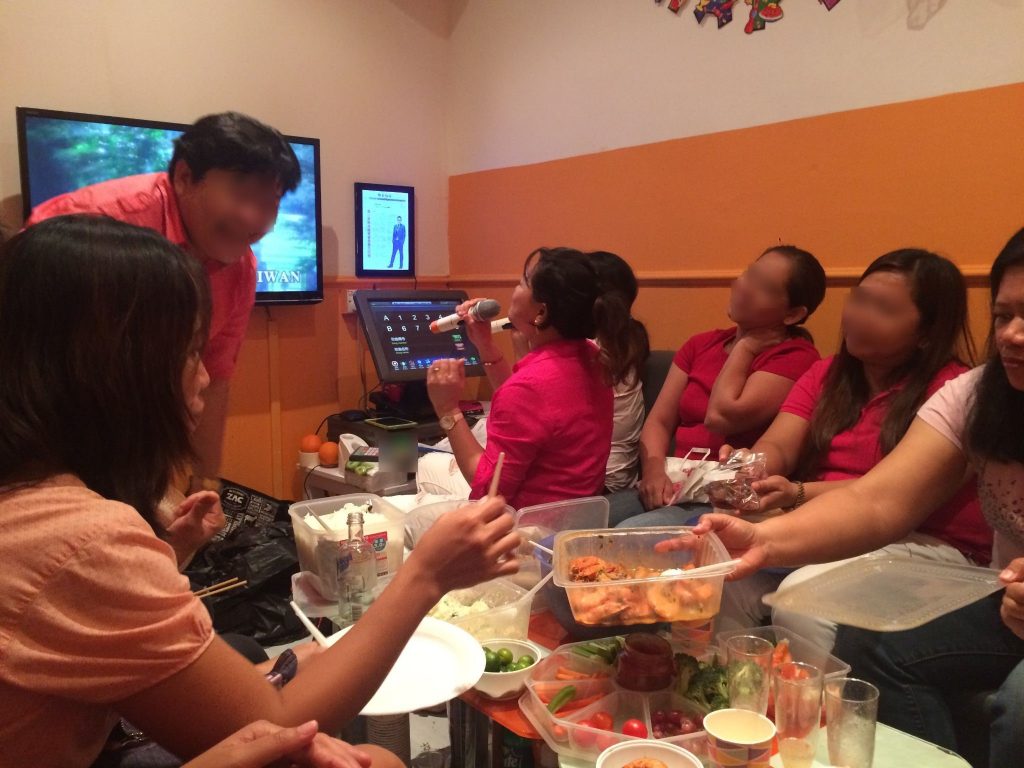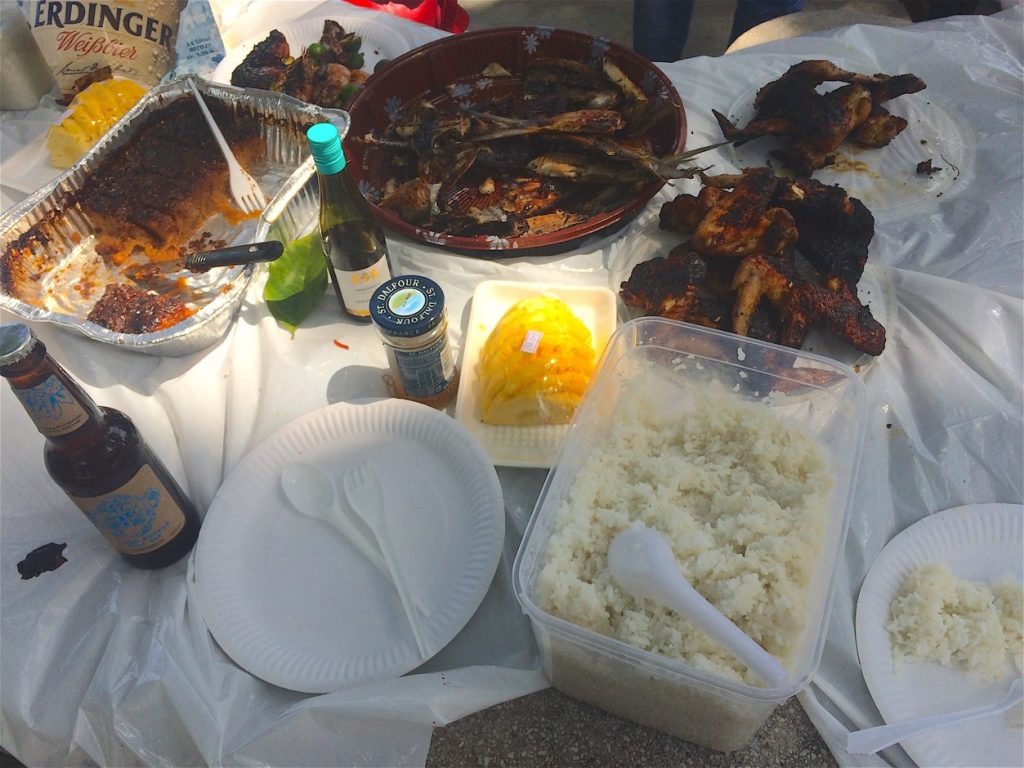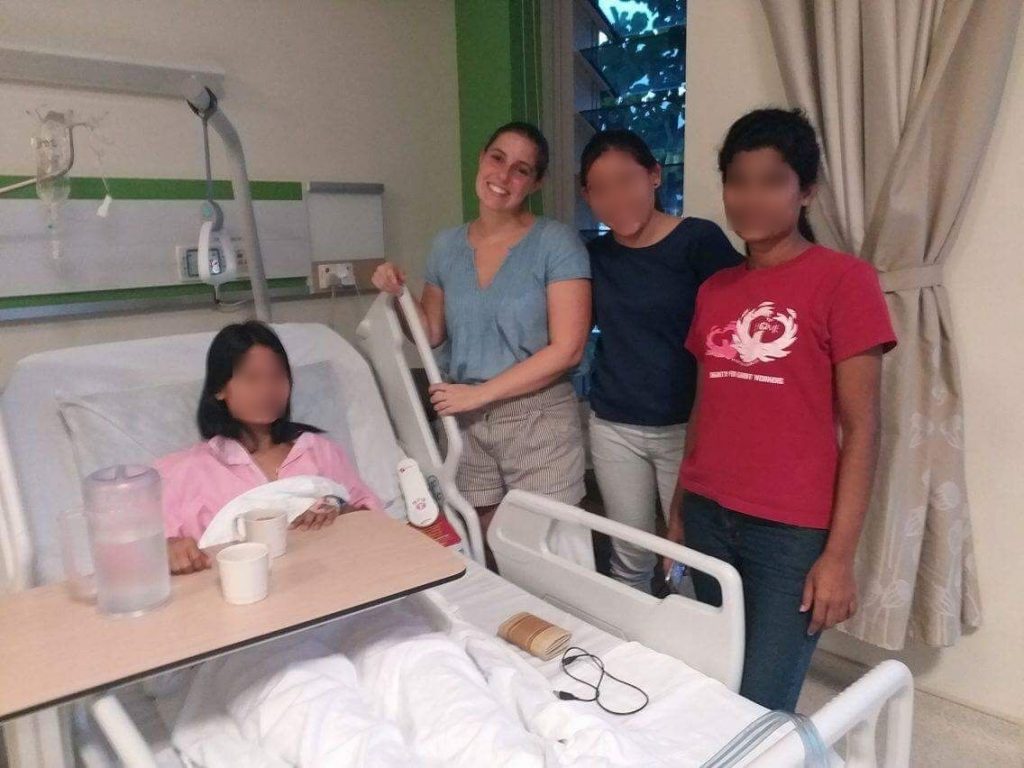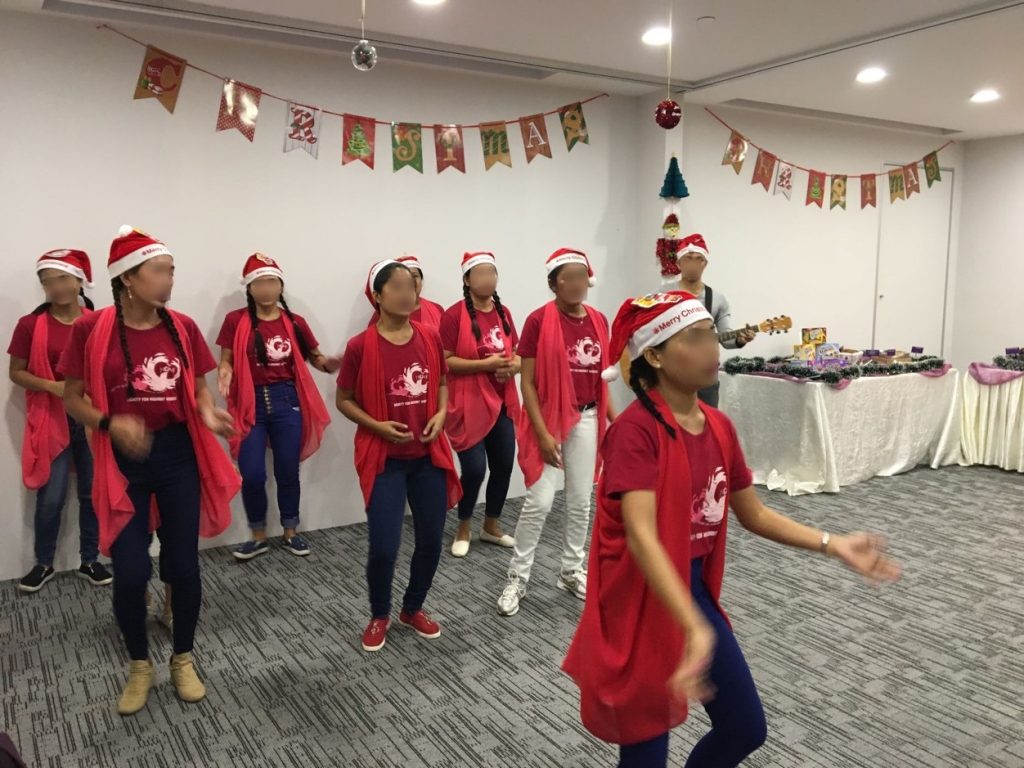This contribution presents a journey into how a researcher has developed meaningful relationships with research participants in the field. By flexibly adapting to the field, the researcher was able to gain broader insights from the field and have a deeper understanding, writes Laura Antona.
_______________________________________________
I first set off for Singapore in June 2016, with the intention of establishing connections with organisations which worked with domestic workers. Given the privatized nature of domestic labour, and the difficulties with ‘accessing’ research participants in general (Hammersley & Atkinson, 1995; Wolcott, 1999), I had anticipated finding it difficult to meet with domestic workers and form intimate connections, or to get to the point where I would experience the often-cited ‘deep hanging-out’ that ethnographic research benefits from (Clifford, 1997; Geertz, 1998). Before arriving for the initial phase of my fieldwork, therefore, I had contacted several NGOs that worked with domestic workers to arrange meetings, with the hope that I would be able to volunteer and to use this experience as a way of gaining access to this population. Initially, I imagined that these organisations could act as spaces from which I networked in order to meet domestic workers who were still in employment, feeling that my research interests, which at the time were centred more closely on how migrant domestic workers created spaces of belonging within others’ homes, could only be partially explored from within an organisation.
Despite having a plan in place, if somewhat vague, when I arrived in Singapore for the first time I still felt completely overwhelmed and confused as to how I would ever develop meaningful relationships with members of the domestic worker community. Within the first few days of landing in Singapore, it became clear that volunteering with HOME, an NGO that manages a shelter for domestic workers who are no longer willing/able to live with or work for their employers, would give me the greatest opportunities to spend time with domestic workers directly. The shelter provided a space where there was always a need for extra volunteers and for tasks to be completed, and where I was able to quickly establish both a daily routine and friendships with different members of staff, volunteers and residents. It also provided me with access to an established community that I was able to interact with quickly and with ease. This helped me to mitigate the challenge that many urban ethnographers face as, unlike some traditional village ethnographies, communities living in cities can be dispersed across great distances (Duneier, Kasinitz, & Murphy, 2014).
While I would volunteer Monday through Saturday, I felt it necessary to spend as much time as possible in the city centre on Sundays, in order to meet domestic workers who were still in employment and who had more positive living/working relationships and environments. In all of my interactions with domestic workers in the first few weeks, however, in all of these spaces and in an eagerness to be actively ‘researching’ and ‘doing’ ethnography, I found myself awkwardly trying to steer conversations to be closer to my research aims and questions. Despite always introducing myself as a researcher, this process still left me feeling very uncomfortable, with the extractive nature of ethnography (Siegl, 2019), and the lack of reciprocity that it can entail (Wolf, 1996), feeling particularly pronounced. Indeed, it felt particularly perverse to be trying to understand if/how a shelter resident would make themselves feel more comfortable, or ‘homely’, in a household where they might have experienced violence and abuse.
After several awkward encounters and conversations in these first weeks of my fieldwork – and while feeling uneasy about my own positioning, motivations and aims – I decided to focus much more broadly on building relationships with the shelter residents and supporting HOME as a volunteer. I stopped trying to direct conversations and became less concerned, for a period at least, with data collection directly. I continued to write field notes each day but tried to allow the field to guide me and to stop forcing awkward conversations and interviews.
Indeed, despite my initial concerns about this change in approach, as the months progressed, I began to extend my parameters to attend picnics, birthday celebrations, karaoke, basketball games, pageants, church and training centres on Sundays (as can be seen below in Figures 1 and 2).
Figure 1: A group of domestic workers celebrate one of their birthdays at a karaoke bar. They bought food, drink and a cake to celebrate (photo author’s own, 2017).
Figure 2: A group of domestic workers and male migrant workers had rented a BBQ pit in the park to celebrate one of their birthdays (photo author’s own, 2017).
Over time, the people I met and got to know more intimately started to invite me to other events they were attending, or just to relax with them. While the informal conversations, interviews and opportunity for participant-observation (both in the shelter and on Sundays) were insightful and interesting, I still had a lingering feeling that I was ‘failing’ at ethnography. Rather than being able to see people within their living and working environments, I would only learn key details about this and was certainly not able to visit or observe in these spaces.
While feeling this dissatisfaction, then, it was only after being in Singapore for a few months, and when writing a short update on my progress, that it occurred to me that I was spending considerable time in spaces which were, in themselves, of both personal and academic significance. Indeed, as I spent more time with shelter residents and allowed them to lead conversations, rather than unsuccessfully trying to impose my original interests – and as I learnt more about the reasons for them having left their employment and their interactions/experiences after this – my own research interests gradually shifted. By allowing conversations and interviews to be taken in the direction desired by the people I was speaking to, as proponents of unstructured interviews suggest can be beneficial (Given, 2008), I realised that I was already incredibly well and uniquely placed to unpack and question how migration and migrant bodies were being managed and disciplined at a broader level in Singapore. My presence in HOME – and within the lifeworld of the residents, staff and volunteers (Castree, Kitchin, & Rogers, 2013) – allowed me to bear witness to the broader struggles that the residents faced as domestic workers, migrant labourers, and individuals who were either unable to leave the country or facing deportation. Recognising this, and the importance of the HOME community to the domestic workers who were still in employment, I started to ask less about their experiences of belonging within their employers’ homes (although details of this did continue to emerge naturally in conversation) and began to ask more about their experiences in the shelter, and about the events, emotions and places I was actually seeing and experiencing with them. Ultimately it was my exposure to these spaces and stories, particularly to experiences of suffering that ultimately reshaped my research, leaving me compelled to write about them. By participating in the everyday life of the shelter and the HOME community, and developing intimate connections with different individuals, over time, I realised I was already ‘doing’ ethnography.
As my research aims and interest transformed, rather than the shelter narrowing my research, as I had been somewhat concerned about, it actually provided me with opportunities to go beyond its physical walls to reach the courts, embassies, hospitals (see Figure 3), clinics, recruitment agencies, private homes and even to corporate events (see Figure 4) and festivals throughout the island nation. While being a volunteer and researcher brought its own ethical dilemmas, my initial concerns faded as my experiences within the shelter space particularly grew to be so significant.
Figure 3: Another volunteer, shelter resident and I visited another resident who was in hospital after an operation. She had pins put in her pelvis and plates in her spine after falling from a building. She was able to send this photo to her concerned family in Myanmar for reassurance (photo author’s own, 2017).
Figure 4: The shelter residents attended a staff Christmas party (of an international retailer that supports HOME) to sing carols (photo author’s own, 2017).
References
Castree, N., Kitchin, R., & Rogers, A. (2013) Oxford Dictionary of Human Geography. Oxford, UK: Oxford University Press.
Clifford, J. (1997) Routes. Travel and Translation in the Late Twentieth Century. Cambridge, MA: Harvard University Press.
Duneier, M., Kasinitz, P., & Murphy, A. K. (2014) The Urban Ethnography Reader. Oxford, UK: Oxford University Press.
Geertz, C. (1998) Deep Hanging Out. The New York Review of Books, 45(16) [online]. Retrieved from http://www.nybooks.com/articles/1998/10/22/deep-hanging-out/, accessed: 27th August 2020.
Given, L. M. (2008) The Sage Encyclopedia of Qualitative Research Methods. London, UK: Sage Publications Ltd.
Hammersley, M., & Atkinson, P. (1995) Ethnography. Principles in Practice (2nd ed.). Abingdon, UK: Routledge.
Siegl, V. (2019) Uneasy Thankfulness and the Dilemma of Balancing Partiality in Surrogacy Research. In T. Stodulka, S. Dinkelaker, & F. Thajib (Eds.), Affective Dimensions of Fieldwork and Ethnography (pp. 87–96). Cham, Switzerland: Springer Nature.
Wolcott, H. F. (1999) Ethnography: A Way of Seeing. Oxford, UK: AltaMira Press.
Wolf, D. (1996) Situating Feminist Dilemmas in Fieldwork. In Feminist Dilemmas in Fieldwork. Oxford, UK: Westview Press.
About the research
Laura Antona’s PhD focused on the experiences of migrant domestic workers who were no longer willing/able to work-for/live-with their employers in Singapore. Having spent just under a year in a shelter that provides refuge for this population, her research considers how the residents negotiated their everyday lives in this environment.
While ethnographic in nature, Laura’s research focuses on: migration, migrant detainment and detention, shelter spaces, intersectionality, violence, and body politics.
Related publications
Antona, L. (2019) Making hidden spaces visible: Using drawing as a method to illuminate new geographies. Area, 51(4), 697-705.
For citation: Antona, L. (2020) Entering the Field and Discovering that I was ‘Doing’ Ethnography. LSE Field Research Method Lab (3 September 2020) Blog entry. URL: https://blogs.lse.ac.uk/fieldresearch/2020/09/03/entering-the-field/










1 Comments